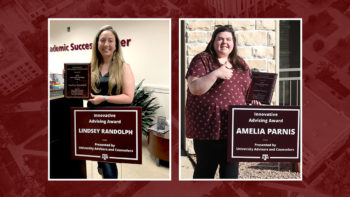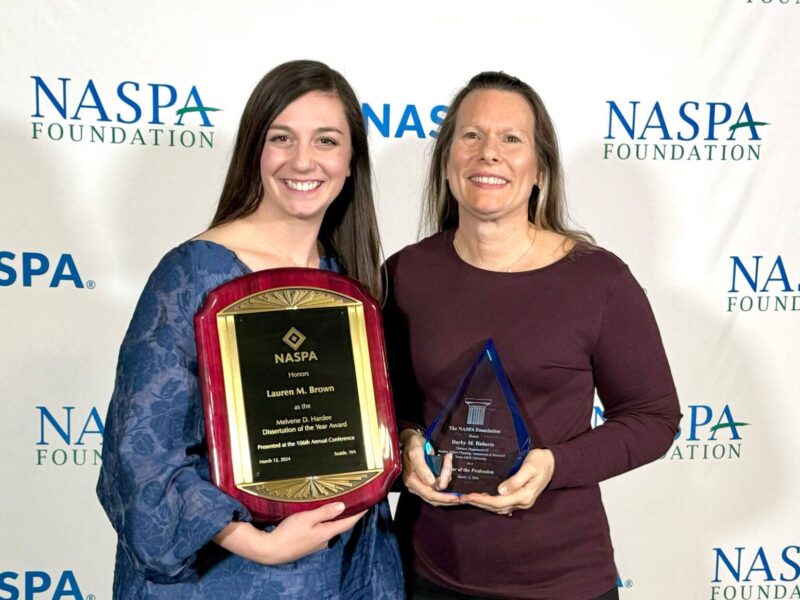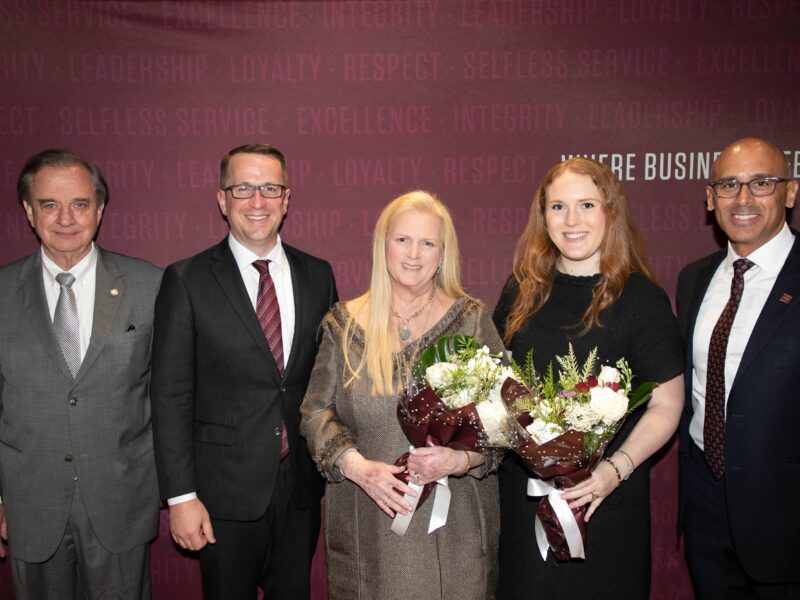Academic Success Center Program Coordinators Recognized For Innovative Advising

Texas A&M’s University Advisors and Counselors has collectively awarded Lindsey Randolph, program coordinator of tutoring, and Amelia Parnis, program coordinator of supplemental instruction (SI), the Innovative Advising Award for their creative approach and quick response to moving their programs online.
Given annually, the award recognizes “the most creative and unique uses of technology and/or advising models that support academic advising.” Recipients were presented an award plaque and a commemorative yard sign at their homes in place of the annual banquet.
With the sudden and unplanned move to online classes in the middle of the spring semester, Academic Success Center (ASC) staff and student workers quickly adapted to create a virtual campus using various technologies, applications and websites.
Transitioning to new ways of tutoring and providing supplemental instruction advising involved quick planning, new and creative uses of technology, and thorough training, Parnis said.
“How can we possibly achieve the same impact of SI online and avoid having SI sessions turn into a second lecture?” she said.
To effectively pivot quickly while continuing to maintain quality, SI leaders were trained and briefed on how to host collaborative SI sessions via Zoom within a week. The Zoom breakout room feature grouped students into a smaller, more intimate, setting which facilitated discussions and peer-to-peer help. SI leaders also used technology that encouraged real-time collaboration, like Google Docs, and MindMup to record brainstorming and notes during sessions.
Similarly, Randolph was tasked with moving five face-to-face tutoring locations (which offered more than 300 hours of tutoring per week) completely online. Randolph immediately began working on a plan that involved training tutors on various functionalities of Zoom and completely re-scheduling all the tutors—a monumental task, ASC officials said.
Tutors were originally scheduled by location, and in the throes of a pandemic, that was no longer going to work. Instead, Randolph created a completely new strategy for scheduling her tutors that offered more help on a regular basis to students taking highly-requested, core-curriculum courses.
“This simple change in scheduling allowed for a significant increase in our support directly benefiting the students,” Randolph said.
Moving two large academic peer-led programs online was not an easy task. While technology played an important role, the people who work with Randolph and Parnis consistently pointed out that the key to their success was developing good relationships with their tutors and SI leaders.
“The work for keeping this program running during this pandemic was put in place before the semester even started. Through detailed training, guidance and just keeping an open-door policy, Amelia has shaped all of these student workers into amazing SI leaders,” said Taya Berry, SI graduate assistant.
“ASC tutoring and SI programs are responsible for providing academic support to thousands of students each year,” said Valerie Balester, assistant provost for undergraduate studies and executive director of the academic success center. “The undertaking of moving these services online in such a short time cannot be overstated.”
Prior to the pandemic, around 40 tutors were available daily for drop-in, face-to-face tutoring in five different locations around campus. More than 60 SI leaders held sessions that were offered three hours per week outside of class to break down information through active and collaborative learning methods. Both models rely heavily on student engagement during sessions.
In support of the award nomination for Parnis and Randolph, ASC Associate Director Kathleen Speed ended a nomination letter with a poignant homage to Parnis’ and Rudolph’s dedication to helping students, writing, “In a time of great upheaval and chaos, their leadership and commitment to students was their priority.”
Media Contact: Anna Transue, Undergraduate Studies, transuea@tamu.edu





